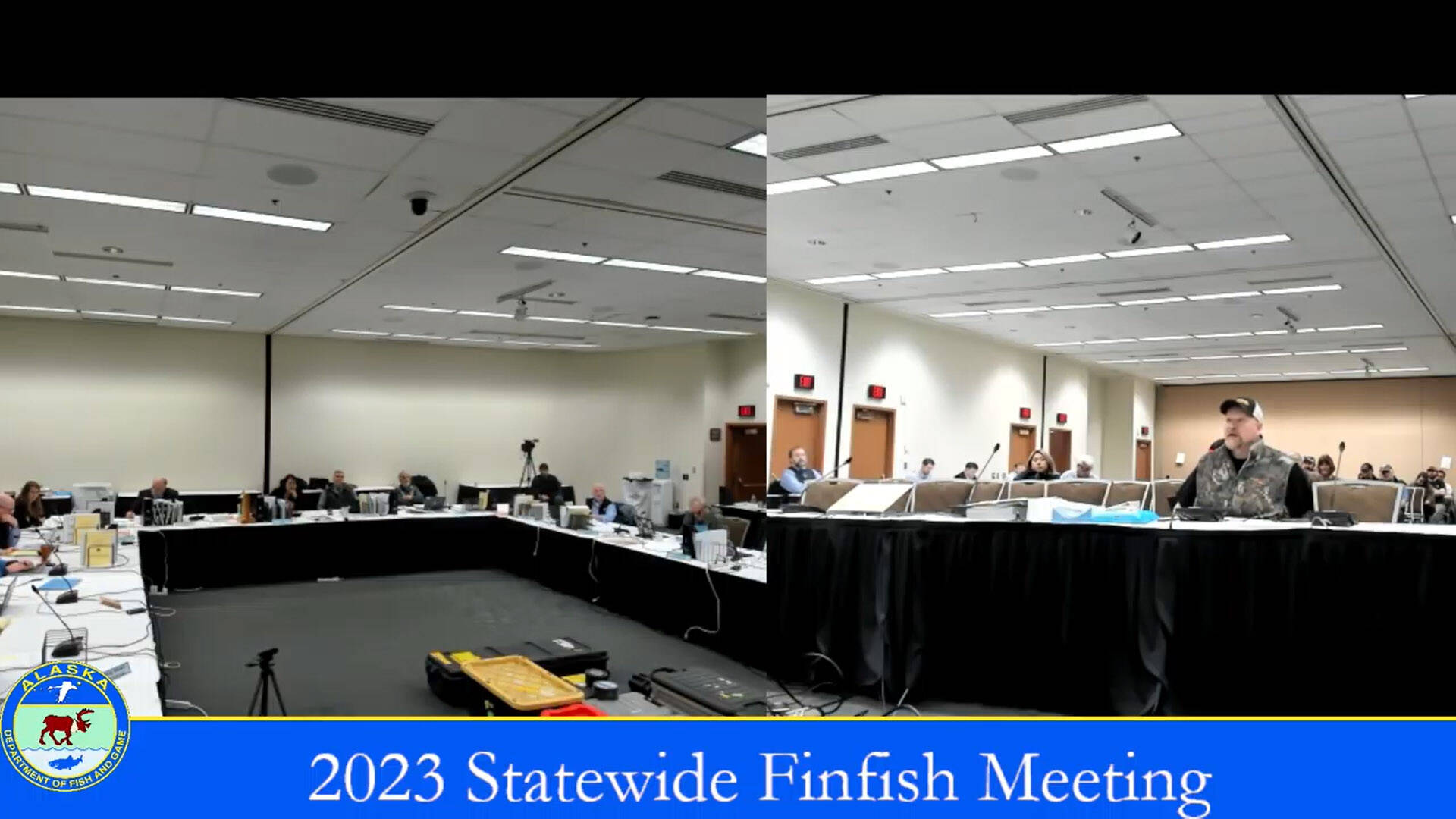The Alaska Board of Fisheries began its Statewide Finfish and Supplemental Issues meeting Friday at the Egan Civic & Convention Center. During the meeting, which stretches five days, the Board will decide whether to implement or reject a variety of proposals that affect statewide fishing regulations.
On Friday, the focus was largely on public testimony. Several anglers from the Kenai Peninsula testified against Proposals 163-167, which all restrict or ban guide services in personal use or subsistence fisheries, including Kenai River dipnetting.
Proposal 163 prohibits guiding in personal use fisheries; Proposal 164 establishes new reporting and registration requirements for personal use guides; Proposal 165 prohibits compensation for guide services in subsistence fisheries; Proposal 166 establishes a statewide bag limit for personal use fisheries; and Proposal 167 requires inseason reporting of subsistence and personal use harvest within five days.
Only Alaska residents can participate in personal use or subsistence fisheries, according to state regulations.
A request to pull Proposal 163 was submitted by author Patrick McCormick of Chugach View Outfitters in Anchorage. In the request, he writes that discussion with others has led him to the new belief that the proposal is not a statewide matter — instead a case-by-case issue.
Glen Trombley, a Kenai River guide who runs “The Dip Ship” testified that his entire business model was designed around providing access to disabled Alaska residents. He said his boat was designed to accommodate those with disabilities, including stations for those in a wheelchair.
In Alaska, Trombley said 13% of the population has a registered disability.
“Why would we not want to recognize those folks?” he asked.
Discussing the financial compensation element and concerns about commercialization of the fisheries, Trombley said that guiding can be viewed either as a for-profit entity or as a service. He favored the latter.
While guiding, Trombley said, he and his son operate the boat, clean and filet fish and assist in pulling in fish if necessary. They provide equipment and require life jackets.
“We don’t fish for them,” he said.
Trombley told the board that half or more of the anglers who charter his guide service are disabled, though he said that’s because he has catered to and build a reputation with those with disabilities.
Josh Hayes, speaking on behalf of and representing the Cooper Landing Fish and Game Advisory, said that the group opposed Proposals 163-165 and 167 because guiding in the personal use and subsistence fisheries was viewed as increasing access to those without the financial means to purchase boats and equipment.
The Kenai River Sportfishing Association’s executive director, Shannon Martin, spoke on behalf of the group against Proposals 163-167.
“These fisheries feed Alaskans,” she said. “Each of these proposals chip away at Alaska residents’ opportunities to harvest salmon.”
Tom Jennings, an Eagle River resident who said he’s been fishing on the Kenai River and Kasilof River for decades, said he isn’t strong enough to stand in the river current anymore. He identified himself as a 70-year-old disabled veteran.
“I don’t feel safe, I really do fear being swept into the current,” he said.
Use of guides is the only way he is still able to participate, Jennings said.
Support for the proposals was expressed in testimony by two commercial anglers, including Darin Gilman, who proposed 166. The two said that commercial endeavors have no place in subsistence fisheries.
Locally, the Proposals 163-167 were supported officially by the Homer Fish and Game Advisory Council, in their written testimony. That group said financial compensation had no place in personal use or subsistence fisheries.
Opposition to the proposals was expressed by two subsistence anglers from Anchorage, who said that they’re far removed from their traditional lands — that guide services allow them to participate in their subsistence fisheries despite not owning boats or tools.
Several guides from the Copper River also spoke against the proposals, saying that the Copper River is fast and dangerous, and that experienced guides provide safe access.
“If you make a mistake, it can cost someone their life,” Andrew Couch said.
The board asked one guide, Mark Spencer of AK eXpeditions, about the commercial element in subsistence fishing, specifically how much money his clients are making.
“None,” he responded. “They get an opportunity.”
The Board of Fisheries meeting will continue through the weekend with more public testimony and deliberations on the proposals. More information can be found at adfg.alaska.gov. Full livestreams can be found at “Alaska Board of Fisheries” on YouTube.
Reach reporter Jake Dye at jacob.dye@peninsulaclarion.com.

